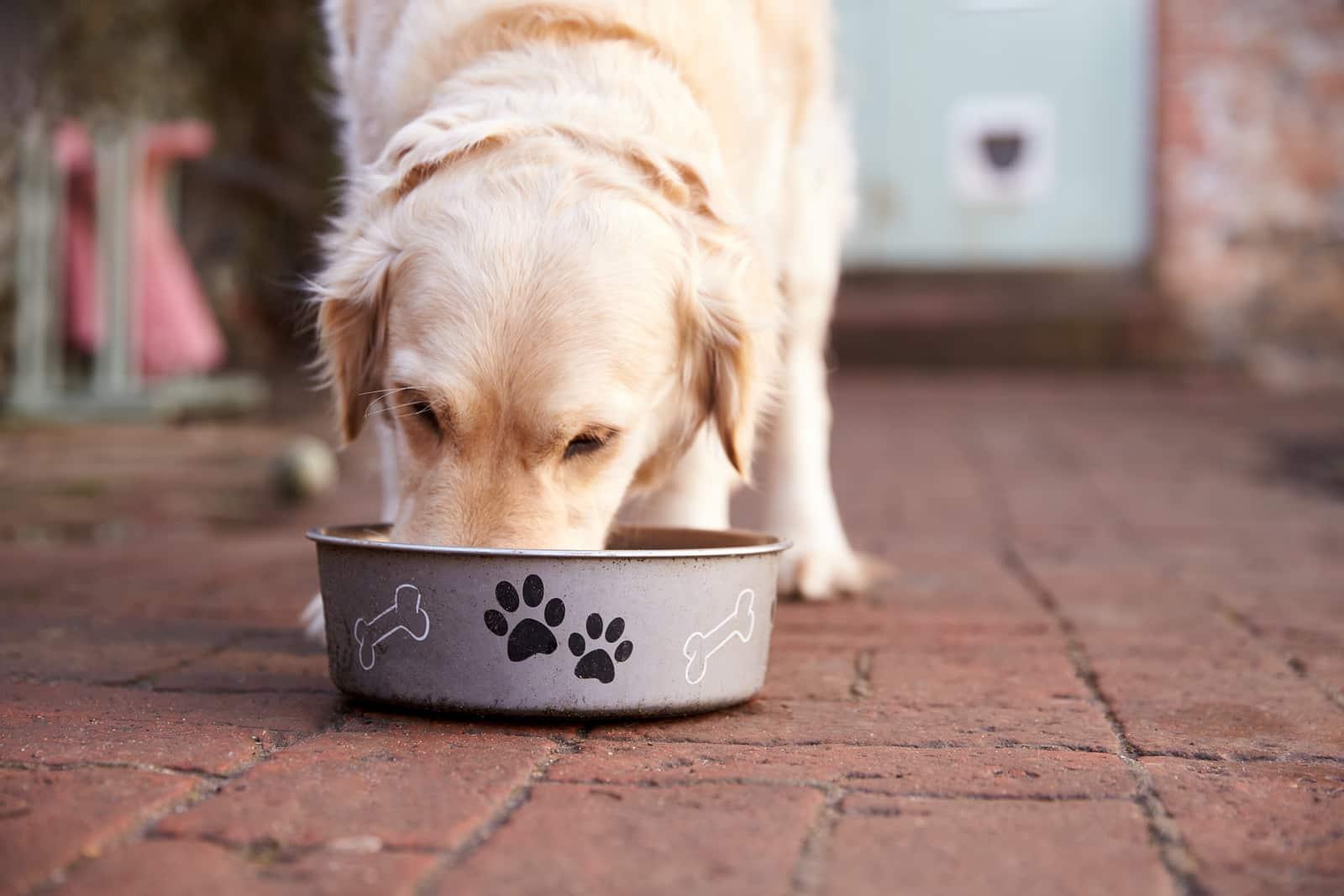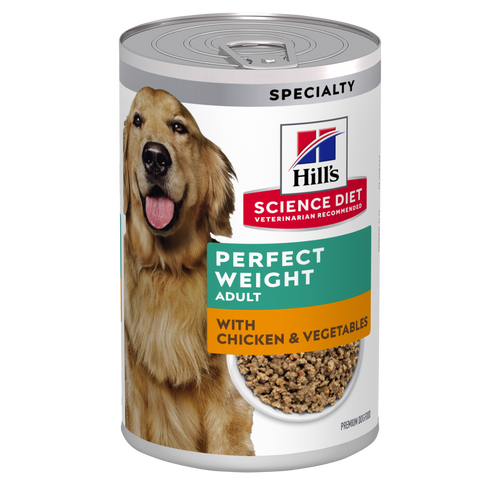
-
Find the right food for your petTake this quiz to see which food may be the best for your furry friend.Find the right food for your petTake this quiz to see which food may be the best for your furry friend.Health CategoryFeatured products
 Adult 6+ Large Breed Chicken Meal, Barley & Rice Recipe Dog Food
Adult 6+ Large Breed Chicken Meal, Barley & Rice Recipe Dog FoodSupports energy level, joint health, and beautiful coat in large breed mature dogs
Shop Now Healthy Mobility Large Breed Chicken Meal, Barley & Brown Rice Recipe Dog Food
Healthy Mobility Large Breed Chicken Meal, Barley & Brown Rice Recipe Dog FoodAdvanced nutrition shown to support joint health and improve mobility
Shop Now Adult Perfect Weight & Joint Support Chicken & Brown Rice Recipe Dog Food
Adult Perfect Weight & Joint Support Chicken & Brown Rice Recipe Dog FoodThis weight management and mobility support dog food was created with Hill’s unique understanding of the biology of overweight dogs.
Shop NowFeatured products Adult Perfect Weight Salmon & Vegetable
Adult Perfect Weight Salmon & VegetableOver 70% of cats lost weight within 10 weeks when fed this nutrition
Shop Now Adult Indoor Savory Chicken Entrée Cat Food
Adult Indoor Savory Chicken Entrée Cat FoodPrecisely balanced nutrition for indoor cats with the delicious taste of savory minced chicken
Shop Now Kitten with Salmon
Kitten with SalmonPrecisely balanced nutrition with the delicious taste of minced salmon to help build immunity and a healthy digestive system
Shop Now -
DogCat
- Cat Tips & Articles
-
Health Category
- Weight
- Skin & Food Sensitivities
- Urinary
- Digestive
- Kidney
- Dental
- Serious Illness
-
Life Stage
- Kitten Nutrition
- Adult Nutrition
Featured articles The Right Diet For Your Pet
The Right Diet For Your PetLearn what to look for in healthy pet food & nutrition, including ingredients, quality of the manufacturer, your pet's age, and any special needs they have.
Read More Water
WaterWater is the most important nutrient of all and essential for life. Animals can lose almost all their fat and half their protein and still survive, but if they lose 15% of their water, it will mean death.
Read More Pet Food Storage Tips
Pet Food Storage TipsWhere you store your cat and dog food can make a big difference in the quality and freshness once it is opened. Here are some common questions and recommendations for optimal storage for all of Hill’s dry and canned cat and dog food.
Read More -


Are you puzzled about why you're seeing brown rice in the list of ingredients in your dog food? Can dogs eat brown rice? In short, the answer is yes, as brown rice offers important nutrients for your dog's overall health. Here are explanations to some of the most common questions about why brown rice is an essential ingredient in many dog foods.
What health benefits does brown rice offer dogs?
Brown rice is full of natural fiber, which helps a dog's digestion. It is also an excellent source of carbohydrates, vitamins and minerals. Specifically, vitamins D and B — essential to heart health — are found in brown rice. Minerals and vitamins essential to a dog's health, including calcium, iron and riboflavin are also packed into this superfood. It is important to have the right balance of these nutrients in your dog's food, so if you see brown rice listed as an ingredient in a Hill's dog food you can be confident that Hill's has done extensive research to make sure that it not only meets our high-quality standards, but is also precisely balanced to meet your dog's needs.
Brown rice vs. Brewers rice: What’s the difference
Brown rice is made by removing the hulls from the rice kernel but leaving some of the bran intact, giving it a brownish color. By contrast, brewers rice (named because it is often used in the brewing industry) is broken pieces of white rice. Nutritionally speaking, brewers rice is a great source of energy and provides protein and minerals.

What about white rice?
The biggest nutritional difference between brown and white rice is that the bran on brown rice increases the fiber content. Unless your pet's food uses rice as a primary fiber source, either option will work fine for your dog.


Tasty Tips
Can my dog be allergic to rice?
Yes, but it's rare. If your dog is allergic to rice or other grains, they might have symptoms, such as itchy skin, hair loss and ear infections. But those same symptoms could be caused by other allergies or health issues. It's best to ask your vet to help you determine if your dog suffers from a rice allergy — or any other type of allergy — before cutting it from his meals.
Why would I want to keep my dog from eating grains?
The popularity of a grain-free food has far outpaced the number of dogs with diagnosed grain allergies or sensitivities. This fad, instead, became popular about the same time as low-carb diets in human kitchens. Vets report frequently hearing from pet parents that they chose to go grain free because they believe grains are simply fillers in dog food to keep prices low. That is simply not true. Whole grains like brown rice provide dogs with important and digestible nutrients. In addition, grain-free dog foods are not low in carbs — which are essential to a dog's overall health. All that being said, some dogs should go grain-free, so make sure to check with your vet if there is one that is best for your dog.
So, can dogs eat brown rice as part of a healthy meal plan? The answer is yes, and that it actually provides beneficial nutrients for your dog — it's not a cheaper filler option. The most important thing to remember in choosing a dog food is that it should provide your dog with complete and balanced nutrition. Hill's relies on a team of more than 200 veterinarians, nutritionists, and food scientists to develop new products and improve existing ones, to ensure that your pet lives a long, healthy, and full life. Always be sure to consult your veterinarian on ingredients for your dog's food, and do not rely on fads to sway your opinion of choosing the right nutrition for your dog. We care about his health as much as you do, and make every effort to ensure when they eat a Hill's dog food that they are getting a high-quality meal with thoughtfully sourced ingredients.


Kara Murphy is a freelance writer and pet parent who lives in Erie, Pa. She has a goldendoodle named Maddie.
Related products

Advanced nutrition shown to support joint health and improve mobility

This weight management and mobility support dog food was created with Hill’s unique understanding of the biology of overweight dogs.

Supports energy level, joint health, and beautiful coat in large breed mature dogs

Over 70% of dogs lost weight within 10 weeks when fed this nutrition
Related articles

A dog with a sensitive stomach has special needs. Learn more about sensitive stomach symptoms in your dog, what you can do to help sooth your pet’s insides and get recommendations on sensitive stomach dog food.

Selecting the right food for your puppy is a key to quality nutrition and a long, healthy life., Learn more about how to select the right puppy food.

Though it may seem like your four-legged friend loves nothing more than to nap on the couch, dogs need regular exercise to stay healthy just like people do.

Learn what you can feed your pregnant or nursing dog to keep her and her new pups healthy.

Put your dog on a diet without them knowing
Our low calorie formula helps you control your dog's weight. It's packed with high-quality protein for building lean muscles, and made with purposeful ingredients for a flavorful, nutritious meal. Clinically proven antioxidants, Vitamin C+E, help promote a healthy immune system.
Put your dog on a diet without them knowing
Our low calorie formula helps you control your dog's weight. It's packed with high-quality protein for building lean muscles, and made with purposeful ingredients for a flavorful, nutritious meal. Clinically proven antioxidants, Vitamin C+E, help promote a healthy immune system.

